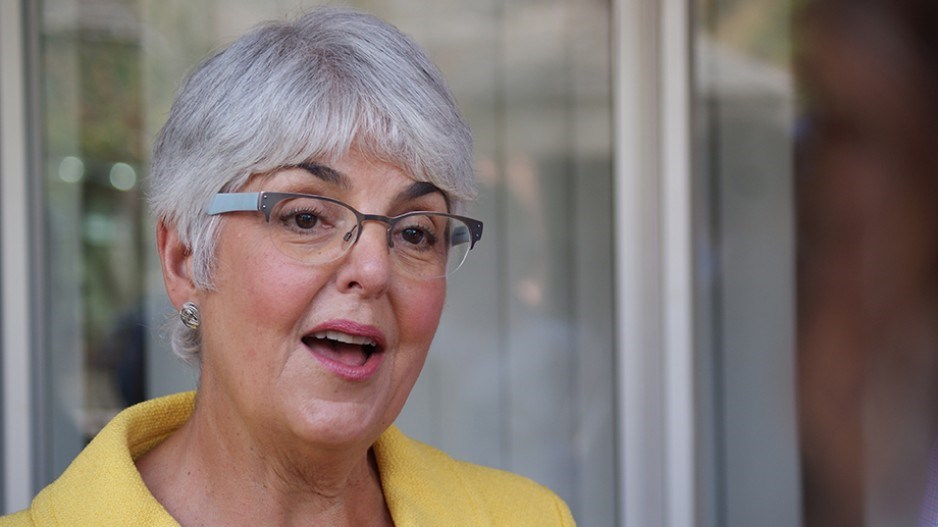The NDP government has brought in dozens of tax regime additions since taking office in 2017.
Some, though, have been delayed due to the COVID-19 pandemic. The province’s website has a lengthy list of deferred and delayed taxes: on sales of sweetened drinks, fuel and tobacco, on the carbon tax, on logging, on the payroll health tax, on the school tax for commercial property and on property taxes for rural areas, among other things.
However, the party has not shied away from introducing a significant number of revenue-generating policies while presenting balanced budgets. The pandemic has ended such balancing.
In her first budget in February 2018, Finance Minister Carole James announced $5.5 billion in tax hikes, some spread over three years.
Among them were:
- New employer health tax to replace Medical Services Plan (MSP) premiums taking effect Jan. 1, 2019 - $2.5 billion. (The total over three years is $4.2 billion, but a $1.7 billion loss in MSP payments was deducted);
- New speculation tax - $487 million. The tax is aimed at combating foreign cash flow critics assert has driven up B.C. housing prices. The tax targets absentee investor homeowners who often declare little or no B.C. income tax in B.C.;
- Expanded foreign buyer tax - $115 million;
- Raised 15% foreign-buyer tax to 20% and extended to Victoria, Nanaimo, the Fraser Valley and Kelowna after concerns foreign investors were looking outside the Lower Mainland. The Ministry of Finance said the tax, first imposed in 2016, generated $102 million in revenue during its first seven months;
- Boosted property transfer tax on residential properties over $3 million - $243 million;
- Increased school tax on residential properties over $3 million $450 million;
- Increased tobacco tax - $285 million;
- New cannabis tax - $200 million;
- Other tax measures - $86 million;
- Carbon tax increase – $1.3 billion. For 2020, the carbon tax is expected to generate 15.6% more revenue than it did last year, an increase of $264 million. Once the B.C. carbon tax hits $50 per tonne in 2021, Victoria plans to pause further increases until it harmonizes with the federal carbon tax, which will hit $50 per tonne in 2022. The increase was to be offset by carbon tax credit increases;
- Heated tobacco products – such as e-cigarettes – subject to a tax of 29.5 cents per product effective April 1, 2020. $1.3 billion;
- Luxury car surtax – April 1, 2018, tax on vehicles in $125,000 to $149,999 range jumped from 10% to 15%, while owners buying vehicles above $150,000 saw the rate double from 10% to 20%;
- The February 2020 budget introduced a new top tax bracket on taxable income of more than $220,000 and imposed a 20.5% rate on it, and made it retroactive to Jan. 1;
- Motor vehicle dealers and manufacturers changing the use of a vehicle in their sale or lease inventory saw PTSD rates increase between five and 10% depending on vehicle value;
- Carbonated beverages – Effective July 1, carbonated beverages with sugar, or natural or artificial sweeteners no longer qualified for food products for human consumption exemption - $27 million;
- Canadian sellers of goods and Canadian and foreign sellers of software and telecommunication services were required to register to collect PST if specified B.C. revenues exceed $10,000. Effective April 1, 2021; and
- Bundled leases – Effective February 2020, if a single price is charged for the lease of a taxable good along with an exempt good or real property, PST applies to the fair market value of the lease of the taxable good.
With the pandemic having hit pocketbooks across the board hard, the provincial government in September announced $1.5 billion in new spending, as well as the introduction of $660 million in new tax incentives and $500 million for a new strategic investment fund.
@jhainswo



